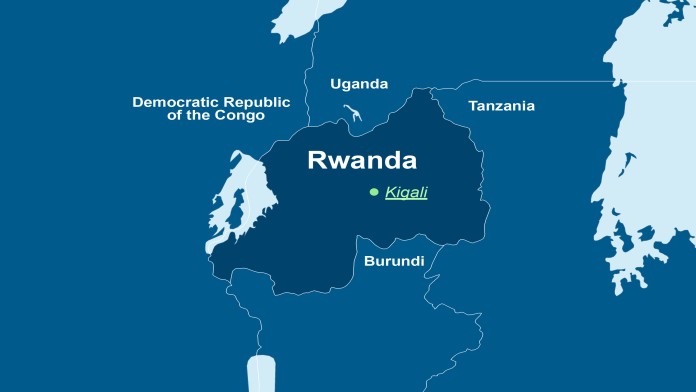
Rwanda, a small country with a high population density, has achieved much in recent years. Extensive and targeted investments in the country’s social and economic infrastructure have led to dynamic economic growth, which is now greater than in 20 other countries in the region. Major progress has been made in alleviating poverty and providing health care. Meanwhile, the economy continues to be dependent on exports of tea and coffee, as well as raw materials. But the government is now looking to expand Rwanda's offerings by making it a service and convention centre in Africa.
Despite their successes, Rwanda is still one of the poorest countries in the world. Over half of the population continues to live below the poverty line of USD 1.90 per day. In addition, Rwanda ranked 165th out of 191 countries in the Human Development Index. At the same time, the population is growing by 2.5% each year, and more than half of the people in Rwanda are under 20 years old. Economic development is primarily focused on the capital, with the rural population benefiting less from it. Because the state’s income is still rather low, there is no comprehensive social security net. Climate change is becoming increasingly noticeable through droughts, landslides and floods, which are causing crop failures.
On behalf of the German Federal Government, KfW supports Rwanda in the following areas:
On behalf of the German Federal Government, KfW promotes good governance and decentralised development by investing in local infrastructure, the social protection system and the digitalisation of public administration.
It supports the development of a modern vocational training system. KfW is also bolstering the Rwandan development bank so that it can grant loans to small and medium-sized, export-oriented companies. This creates jobs and stimulates exports.
As part of a climate partnership between Germany and Rwanda agreed in 2022, KfW is committed to climate change mitigation, climate change adaptation and urban development. This includes the "Green City Kigali" project. An ecological neighbourhood with climate-friendly houses for over 7,000 people is being built here, for which KfW is financing the infrastructure. KfW is also providing funds for the construction of water and sewage lines, as well as for facilities to protect against flooding and erosion in the three fastest-growing cities. KfW is also supporting the establishment of a financing facility that will support projects to reduce greenhouse gas emissions and mitigate the effects of climate change.
KfW is also financing the construction of a transmission line between Rwanda and Congo and Burundi to facilitate regional electricity trading. It is also supporting the construction and rehabilitation of hydropower plants on the Ruzizi River.
In cooperation with the University of Rwanda, KfW is committed to local vaccine production.
KfW supports sustained growth and a socially just transformation in Rwanda with the aim of achieving climate neutrality.
KfW Office Kigali
Director KfW Office: Jochen Saleth
41 KN St 17, Avenue de Kiyovu
P.O. Box 534
Kigali
Rwanda
+250 252 57 57 81